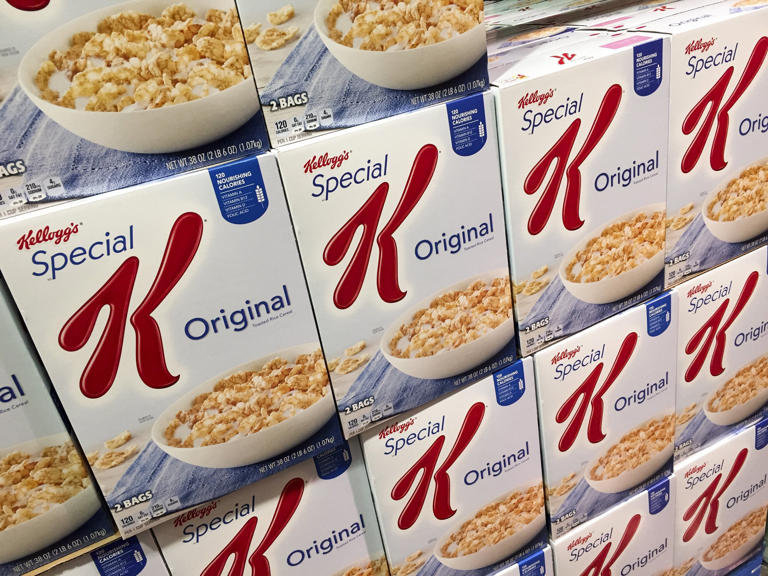Kellogg’s CEO, Gary Pilnick, recently highlighted the company’s “cereal for dinner” campaign, suggesting that it provides a cost-effective solution for families facing the current surge in grocery prices. With Americans spending a significant portion of their income on food, Pilnick emphasized the affordability of cereal compared to other meal options.
The interview with CNBC followed reports indicating a substantial increase in grocery expenses for American families, with the average household spending over $1,000 per month on groceries. Pilnick pointed out that Kellogg’s cereal offerings, including popular brands like Frosted Flakes and Froot Loops, remain cost-effective, particularly when combined with milk and fruit, costing less than a dollar per serving.
Despite potential skepticism, Pilnick expressed confidence that the concept of having cereal for dinner resonates well with consumers, citing that 25% of cereal consumption already occurs outside of the traditional breakfast timeframe. He believes that this trend aligns with the current economic pressures facing consumers, making cereal a practical and affordable meal option.
Pilnick’s remarks suggest that Kellogg’s sees an opportunity to capitalize on the growing trend of cereal consumption beyond breakfast, positioning the company as a reliable and cost-efficient choice for families navigating financial challenges.
Consumers react to Pilnick’s ‘cereal for dinner’ remarks
The “cereal for dinner” campaign, aimed at providing a cost-effective meal option amidst rising grocery prices, initially launched over a year ago during a period of heightened inflation in the United States. With food prices soaring by 9.9% in 2022, the highest rate since 1979, and in-home food costs increasing by 11.4%, many Americans were feeling the pinch at the grocery store.
However, despite Kellogg’s CEO Gary Pilnick’s comments emphasizing the affordability of cereal as a meal option, the response from some corners of the internet has been critical. Social media users, particularly on platforms like TikTok, have expressed skepticism and frustration with Pilnick’s remarks.
Some users have pointed out the apparent disparity between Pilnick’s high income, including a $1 million base salary and over $4 million in incentive compensation, and the suggestion that cereal for dinner is a practical solution for families facing financial pressures. Others have criticized Kellogg and similar companies for potentially contributing to inflation through price increases and accused them of prioritizing shareholder profits over consumer welfare.
These reactions underscore the complexities surrounding discussions of food affordability, inflation, and corporate responsibility, and highlight the need for companies to consider and address consumer concerns transparently and empathetically.
